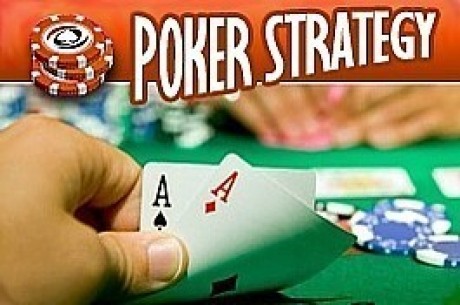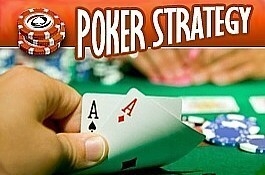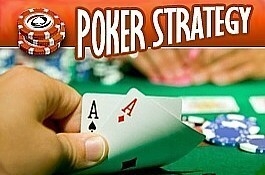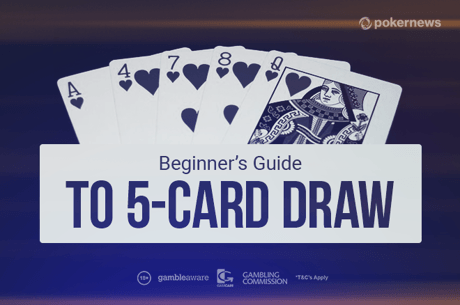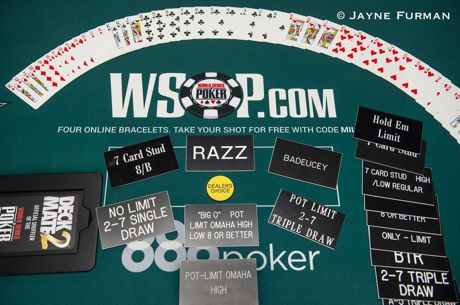Talking HORSE with Lou Krieger, Vol. 7: Omaha/8 Starting Hands, Part 1
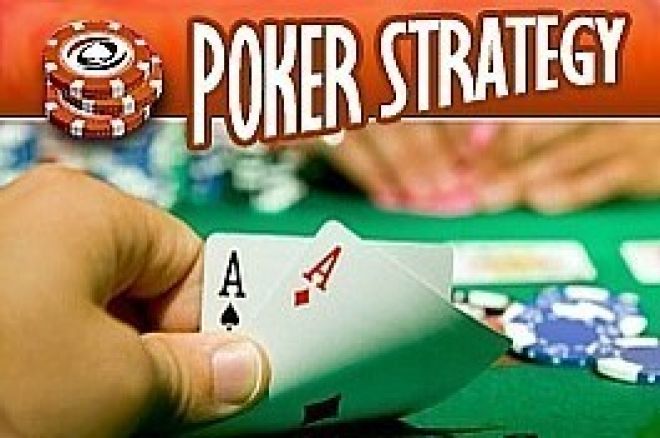
Stop me if you��ve heard this one: ��I like Omaha/8 because you get four cards and can play more starting hands.�� Everyone��s heard it, far too many people still say it, and it��s still wrong! The truth of the matter is that the majority of Omaha/8 players �C particularly those new to the game or who usually play it only as an orbit during a HORSE game �C will lose money in the long run by playing far too many starting hands.
Because you are dealt four cards that can be combined into six unique two-card holdings, it really helps if your cards are coordinated and work together in some logical way, such as having all big cards, all small ones, or a hand like A-K-2-3. That hand gives you two big cards and three small ones because an ace is like two cards in one; it��s simultaneously large and small. It��s even better when the ace and king are each suited to a small card, giving you a draw to the nut- and second nut-flush to go along with your low and high possibilities.
Of all the decisions to be made playing the Omaha/8 round in HORSE, the most important choice stems from your initial decision about whether to fold or play, and it��s a decision you��ll face each and every hand. To win consistently during the Omaha/8 orbit you��ll have to be right about playing or passing the vast majority of the time.
Choosing the right starting hands depends on your position in the betting order as well as how well your opponents play. Omaha/8 provides four starting cards that should work in concert with one another. Let��s call them A, B, C, and D. Card A plays with B. Card A also plays with C. And A plays with D too. B plays with C, as well as with D. Card C also plays with card D. Add up the possibilities and you��ll find that six unique two-card combinations can be made from these four cards.
Compare that to hold��em, where you��re dealt only two cards. How many two-card combinations can be made with two starting cards in hold��em? The answer is simple. It��s one hand, and one hand only and that��s a major difference between the two games.
This should tell you something about the complexity of Omaha/8 compared to hold��em. If one of your starting cards doesn't relate to the other three, your possibilities for forming a hand have been reduced, and along with it your chances for winning. Suppose you have three coordinated cards and a card that doesn't fit �C it��s called a dangler �C such as: king, queen, jack, and an offsuit deuce. That deuce doesn't coordinate with any of your other three cards.
If you insist on playing danglers, it��s almost like you��re playing three cards against four of your opponent��s. Three versus four represents long odds, and you��ll have to avoid that to become a good Omaha player.
Recommended Starting Hands
If you follow this list of suggested starting hands �C it comes straight from the book, Winning Omaha/8 Poker that I wrote with Mark Tenner �C you��ll seldom get into trouble or find yourself involved in a hand where you��re confused about whether to keep playing or fold your hand.
? Play any hand containing ace-deuce.
? Play any ace-trey hand as long as the ace is suited to one of your other starting cards. If you have the ace of spades, one of your other three cards must be a spade. It doesn't need to be the three of spades. Any spade will do.
? Play any ace-trey where your other two cards are tens, jacks, queens or kings, sometimes referred to as ten-point cards. If you have ace-trey and your ace is not suited, but your other two cards are ten-point cards, such as K-Q, Q-10, J-10, K-10, K-K, Q-Q, J-J, or 10-10 �C go ahead and play. If your trey is suited, so much the better. If your hand is double-suited, that's better yet. For example, if you have A?3?10?Q? that's much better than having A?3?10?K? where all four suits are different. Nevertheless, any ace-trey accompanied by two ten-point cards is playable.
? Play any ace plus two prime cards. Prime cards are aces, deuces, treys, fours and fives. You can play an ace with any two other prime cards. So you could have A-3-5, A-4-5, and even A-5-5, because those paired fives are prime cards. But be careful here; logic suggests that A-5-5 is a pretty weak hand. You��re really looking for unpaired prime cards because they give you three wheel cards, and if one of your cards is counterfeited �C that happens when one of the community cards matches a card in your hand �C you still have two other low cards that play.
? Play any suited ace if your other two cards are ten-point cards. You may play a suited ace if two other cards in your hand total 20. So you can have A-7-K-10 with either the seven, king, or ten suited to your ace.
? Play any four prime cards, even four prime cards without an ace in your hand, as long as there��s no raise in front of you. The best hand in this situation would be 5-4-3-2 double suited. The worst would be 5-5-4-4 of mixed suits.
This will get you started, and it��s not all you need to know about Omaha/8 starting cards, not by a long shot, so stick around. We��ll give you even more tips about Omaha/8 starting hands next time.
# # #
Lou Krieger is the editor of Poker Player Newspaper. He��s the author of more than 400 articles on poker strategy and 11 books on poker. He can also be heard on the internet radio show, ��Keep Flopping Aces�� which airs Thursday night at 9 p.m. Eastern Time (6 p.m. Pacific) on www.roundersradio.com.

